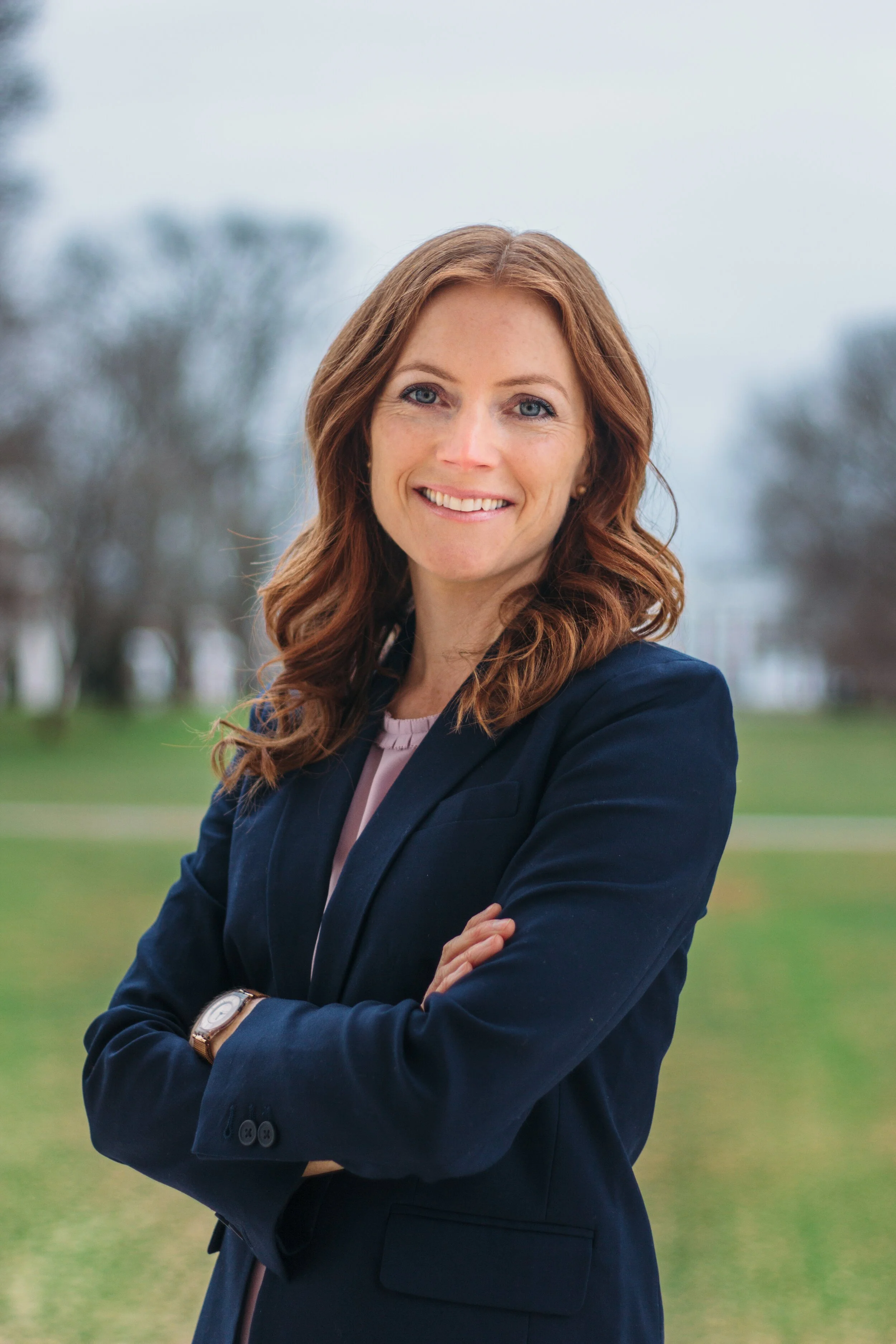Professor Straight
Photography by Jessica Pentel
If you’re reading this, I want you to know that you’re not alone and your story matters. In fact, your story can change the world--not because it is perfect, but because it isn’t.
I remember so well my days as a UVA undergrad. Some of the best memories of my life to date come from those four years scurrying about Grounds, racing the clock to get to my next class while getting in a few quick moments of laughter or conversation with a friend. But I also remember a persistent, low grade anxiety that clung to me, a fear of failure that kept me up at night and aroused me early in the morning hours to study more and work harder. By all outward appearances I was a well-adjusted, academically successful and socially adept student. Many around me might not have known just how much anxiety factored into my day. But internally, I was fighting the persistent voices that said my worth as a person was delicately balanced on my ability to perform: to achieve academically, socially, and in all the well-rounded areas of my life that had earned me acceptance at UVA.
In the midst of my feverish academic pursuits, my father suffered a heart attack that almost killed him. I rushed home to see him in the hospital in time to hear the doctors prescribe dietary and health changes that I had little hope my father would ever make. He was a decorated Vietnam Veteran and a retired Marine Corps officer and no one, really no one, told my father what to do. I returned to school afraid for my father’s diminishing health and threw myself back into my studies as a way to dull the fear and pain.
Within a few years of graduating from UVA, my brother died in a tragic accident and my father died of heart failure. I was broken. It felt as though my life was chugging along in one direction and then, in a terrible moment, the tracks entirely disappeared. I felt derailed. I struggled to maintain my ability to perform at my job, to keep up all outward appearances of being the competent, stable, ever-ready-to-smile person I had worked hard to convince the world I was. But something shifted in me. I couldn’t sleep, food lost its flavor, loud noises shook me, and I had a hard time staying engaged at social gatherings without wanting to run out the back door.
Desperate to numb my pain, I plunged myself into my international field work. I’ll never forget waking before the sun in a hotel room in Nairobi, feeling more empty than I have ever felt in my life, realizing I could not go on the way I was living. I eventually asked for a leave of absence from what I had considered my dream job and moved home to small-town, Warrenton, VA, to be beside my family in our shared sorrow. There I sought out professional counseling and came to terms with the fact that I was fighting depression.
I’m deeply grateful for all of the ways friends and loved ones came around me to offer support. I’m grateful for all of the ways counseling offered me a means to care for myself--my heart, my mind, my body, my soul--in the midst of a season of deep mourning.
The pain of losing my brother and father is still acute. It will always be so. But I’ve learned over time, and with the help of good counseling, to carry it in a way that honors the sustained sorrow while allowing space for all the rest of life’s joys.
Depression and anxiety were not words spoken in my family. They were not words spoken by my coaches or teachers, mentors or professors. They were not words commonly associated with success, leadership or strength. And so they were not a part of any story I would have told about my own life. But I’ve come to believe that sharing my story, the truth and grit of it (which is to say all the untidy parts alongside the neat and clean), is an act of strength in a world so afraid of vulnerability.
In sharing my story, I have come to understand that I am not alone. In sharing my story, I’ve seen walls that isolate us from each other break down to create space for shared empathy, connection and community. I’ve seen people moved to tears, not for my pain, but in a first step in allowing themselves to acknowledge their own pain and anxiety, uncertainty or sadness. I’ve seen it allow others to feel seen and understood, not because we have the same story, but because we are similarly impacted by the brokenness of this world as much as we are by its beauty.
Your story matters. Your story has the power to help others feel seen and understood, to create community and shared resilience. Not because it is perfect or free of brokenness, but precisely because it is not. Tell your story. Have the courage to leave in all the uncertainty and sadness, mistakes and mysteries alongside the cleaned up highlights. Because at the end of the day, we meet each other in our shared vulnerability and it is there we realize we hold on together to a shared hope.
You’re not alone.
Professor Katie Straight, University of Virginia
Department of Global Development Policy
Connect With Us
To follow IfYoureReadingThis at UVA on Instagram, get in touch with our chapter, and learn about more resources available to University of Virginia students, visit our chapter’s homepage.

